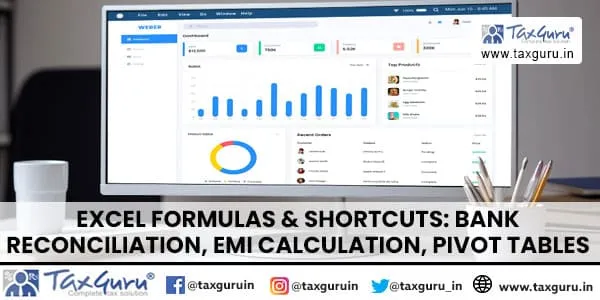Case Law Details
ITAT DELHI BENCH `G’: NEW DELHI,
Survidhi Financial Services Ltd. Vs. ACIT,
APPEAL NO: ITA No. 12/Del of 2010,
DECIDED ON May 26, 2010
ORDER
PER C.L. SETHI
The assessee is in appeal against the order dated 25.9.2009 passed by the learned CIT(A) confirming the penalty amounting to Rs. 10,820/- levied u/s 271(1 )(c ) of the Income-tax Act, 1961 (the Act) pertaining to Asstt. Year 2004-05.
2. The main grievance of the assessee is that the CIT(A) has erred, on law and on facts, in not deleting the penalty imposed u/s 271(l)(c) by the AO in respect of the addition of Rs.30,159/- made in the assessment by way of disallowance of loss of Rs.30,159/- arising to the assessee on account of purchase and sale of units covered by Section 94(7) of the Act.
3. Facts giving rise to the issue in hand are summarized as under:
4. The assessee company is a non-banking financial company and has been granted registration by the Reserve bank of India. The principal business of the assessee company was ton deal in securities. The assessee company filed its return of income on 27.10.04 declaring total income at Rs. 12,44,787/-. The return was initially processed u/s 143(1) of the Act. Later, the case was selected for scrutiny, and notice u/s 143(2) of the Act was duly issued within stipulated time, and was also served upon the assessee. The questionnaire along with notice u/s 142(1) of the Act dated 19.9.2005 was also issued by the AO, which was served upon the assessee. In response to the notices issued u/s 142(1) and 143(2) from time to time by the AO, the assessee’s Authorized Representative appeared before the AO and filed the various details and evidences as required. Assessee also submitted written submissions before the AO. The matter was then examined and discussed by the AO, and framed the assessment u/s 143(3) on 28.12.2006. In the assessment, the AO has stated that during the course of assessment proceedings, it v/as noticed by the AO that the assessee had booked the income from dealing in securities under the head “Capital Gains”. After discussing the matter thoroughly with the assessee, the AO noted the following facts:-
(i) The purchase and sale of securities was allied to his usual trade of business.
(ii) The scale of activity viewed from the overall perspective of scale of operations was substantial.
(iii) The transactions were entered into continuously and regularly during the assessment year.
(iv) The main object of the assessee company carried out during the year was dealing in securities.
(v) All the transactions in securities during the year were in listed securities.
After analyzing the facts and circumstances of the case, AO came to a view that the gain of Rs.38,44,159/- shown by the assessee is to be treated as business profit of the assessee, and accordingly, no set off of this profit was allowed against the brought forward long term capital loss. The AO also noted one more fact that the loss of Rs.30,159/- ‘incurred on sale of units has been adjusted by the assessee against the gain arising from sale of securities though the same was required to be adjusted against the dividend income received on same units in view of the provisions contained in Section 94(7) of the Act. As no reply was filed by the assessee in this regard, the AO after making a reference to Section 94(7) of the Act had taken a view that loss of Rs. 17,386/- on Birla MIP Plan A Monthly Dividend and a loss of Rs. 12,723/- on Franklin Templeton MIP Plan B was not allowable. The AO, therefore, disallowed the loss of Rs.30,159/- for the purpose of set off of the same against other profit of the year. The AO also initiated penalty proceedings u/s 271(l)(c) of the Act by observing that the assessee has’ furnished inaccurate particulars by making a claim of set off of loss of Rs.30,159/- incurred on sale of units against the profit on sale of securities, and thereby concealed the particulars of its income, rendering itself liable for penalty leviable u/s 271(l)(c) of the Act.
5. Being aggrieved against the aforesaid assessment order of AC) in disallowing assessee’s claim of loss of Rs.30,159/-, the assessee preferred an appeal before the learned CIT(A). The CIT(A) upheld the dis allowance made by the AO. Thereafter, the assessee preferred an appeal before the Tribunal by taking a ground that the CIT(A) has erred in upholding the dis allowance of Rs.30,159/- u/s 97(4) of the Act, without satisfying the prerequisite conditions for the same. However, before the Tribunal, as no argument was advanced by learned AR of the assessee in respect of this ground, the Tribunal had taken a view that the cross objection filed by the assessee on this issue is to be dismissed as not pressed for.
6. Having found that the dis allowance made by the AO was confirmed by the CIT(A), the AO provided opportunity of being heard to the assessee before levying any penalty u/s 271(1)(c) of the Act. The AO then considered the facts as discussed in the assessment order and also the material available on record, and found that the fact with regard to the loss disallowable u/s 94(7) of the Act was not disclosed by the assessee in the audit report and by not doing so; the assessee has concealed the particulars of its income. The AO then vide his order dated 23.3.2009 levied penalty amounting to Rs. 10,820/-, being 100% of the tax sought to be evaded on the amount of Rs.30,159/- disallowed by the AO u/s 94(7) of the Act.
7. Being aggrieved with the AO’s penalty order, assessee preferred an appeal before the learned CIT(A).
8. Before the learned CIT(A), the assessee has taken a ground that the assessee has duly deposited the amount of tax on the income of Rs.30,159/-along with applicable surcharge and interest thereon, even prior to issuance of notice for levy of penalty u/s 271(1 )(c ) of the Act. It was also submitted before the CIT(A) that the assessee had duly disclosed the said income in the return filed by the assessee as the said income was disclosed by way of dividend income and profit earned on sale of securities. It was further submitted that no opportunity of being heard was given by the AO before levying the penalty.
9. After considering the assessee’s submissions and the facts of the case, the learned CIT (A) confirmed the penalty order by observing that the addition of Rs.30,159/- made by the AO has been sustained in appeal, and further the assessee failed to disclose the particulars about the applicability of Section 94(7) of the Act, which amounted to concealment of the particular of its income or furnishing inaccurate particulars of its income by the assessee.
10. Still aggrieved, the assessee is in appeal before us.
11. The learned counsel for the assessee has submitted that there is no requirement to disclose in the audit report the matter with regard to dis allowance of loss within the meaning of Section 94(7), and as such mere because the fact of dis allowance of loss to be made u/s 94(7) was not mentioned in the audit report, it could not be said that the assessee has concealed the particulars of his income or furnished inaccurate particulars of his income. The assessee further submitted that it has duly disclosed the particulars of income in the return of income. He further submitted that the claim in the return was a bonafide claim, and mere because the assessee could not appear in response to the show cause notice, the penalty could not be levied in respect of bonafide claim made in the return. In this respect, the assessee has relied upon certain decisions, which are as under:
(a) CIT v. International Audio Visual Co.[2007] 288 ITR 570 (Delhi)
(b) CIT v. PHI Seeds India Ltd. [2009] 301 ITR 131 (Delhi)
(c) Shri Krishna Electrical v. State of Tamil Nadu, 23 VST 249 (SC)
12. The learned DR, on the other hand, submitted that all the basic particulars about the purchase and sale of units, in respect of which dividend income has been claimed exempted by the assessee were never disclosed by the assessee in the return of income. He further submitted that the assessee, on the one hand, claimed the dividend income earned on units as exempted, and, at the same time, the assessee adjusted the loss arising from sale and purchase of same units against other profit on sale of securities without adjusting the dividend income earned on units against the loss arising from sale of same units sold within specified time, which is totally contrary to the specific provisions contained in Section 94(7) of the Act. He, therefore, submitted that the assessee’s claim cannot be treated to be a bona fide one, but assessee has deliberately made a false claim totally in disregard of the specific provisions contained in Section 94(7) of the Act without disclosing the basic and primary facts relating to purchase and sale of units made within specified period of record date as contemplated u/s 94(7) of the Act. He, therefore, contended that the AO was very much justified in levying the penalty, which has been rightly confirmed by the learned CIT(A).
13. We have considered the rival contentions of both the parties and have carefully gone through the orders of the authorities below. We have also deliberated upon the decisions cited by both the parties.
14 The assessee company is a non-banking financial company approved by the Reserve Bank of India. The assessee company is engaged in the business of dealing in securities. The equity shares of the company are listed on the Calcutta Stock Exchange and the Gauhati Stock Exchange Ltd. at the relevant point of time. In the Profit & Loss Account, the assessee has shown interest and other income of Rs.61,58,144/- consisting of the following items:
(i) Miscellaneous income Rs,3,897/-
(ii) Dividend on mutual fund Rs.2,89,538/-
(iii) Interest on loan Rs. 19,97,199/-
(iv) Profit On sale of assessee’s/ Rs.38,67,509/-
mutual fund units
During the year, the assessee purchased and then sold units Plan A and Franklin Templeton Plan B, in respect of which the assessee had incurred a loss of Rs. 17,386/- and Rs. 12, 773 – aggregating to Rs.30,159/-. The dividend received on these units after the units were purchased and before the same were sold, were claimed exempted in the return of income filed by the assessee. While claiming the dividend income as exempted, the assessee has not adjusted the loss arising to the assessee on sale of said units in respect of which dividend was earned, j At this stage, we have to refer to the provisions contained in Section 94(7) of the Act, which reads as under (as it stood at the relevant point of time):
“Section 94(7): Where-
(a) any person buys or acquires any securities or unit ‘within a period of three months prior to the record date;
(b) Such person sells or transfers such securities or — unit within a period of three months after such date;
Then, the loss, if any, arising to him on account of such purchase and sale of securities or unit, to the extent such loss does not exceed the amount of dividend or income received or receivable on such securities or unit, shall be ignored for the purposes of computing his income chargeable to tax.”
Under Explanation to Section 94(7), the “record date” is defined to means as under:
” record date’ means such date as may be fixed by-
(i) a company for the purposes of entitlement of the holder of the securities to receive dividend; or
(ii) a Mutual Fund or the Administrator of the specified undertaking or the specified company as referred to in the Explanation to clause (35) of section 10, for the purposes of entitlement of the holder of the units to receive income, or additional unit without any consideration, as the case may
15. The sub-section (7) in Section 94 was inserted effective from Assessment Year 2002-03 as a measure to curb creation of short-term losses by certain transactions in securities and units. The then existing provisions of the Act before the insertion of sub-section (7) in Section 94 of the Act did not cover a case where a person buys securities (including units of a mutual fund) shortly before the record date fixed for declaration of dividends, and sells the same shortly after the record date. Since the cum-dividend price at which the securities are purchased would normally be higher than ex-dividend price of which they are sold, such transactions would result in a loss which could be set off against other income of the year. At the same time, the dividends received would be exempt from tax u/s 10(33}. The net result would be the creation of a tax loss without any actually outgoings. With a view to curb the creation of such short-term losses, the Act has inserted a new sub-section (7) in the Section 94 to provide that where any person buys or acquires securities or units within a period of three months prior to the record date fixed for declaration of dividend or distribution of income in respect of the securities or units, and sells or transfers the same within a period of three months after such record date, and the dividend or income received or receivable is exempt, then, the loss, if any, arising from such purchase or sale shall be ignored to the extent such loss does not exceed the amount of such dividend or interest, in the computation of the income chargeable to tax of such person. Definitions of the terms “record date” and “unit” have also been provided in the Explanation after subsection (7) of Section 94. This amendment was made effective from 1st April, 2002, and will, accordingly, apply in relation to the assessment year 2002-03 and subsequent years.
16. In order to apply the aforesaid provisions of sub (section (7) of Section 94 of the Act to any given case, the following primary and basic facts need to be brought on record:-
(i) Whether any person buys or acquires any securities or unit within a period of 3 months prior to the record date fixed for distribution of dividend.
(ii) Whether such person sells or transfers such securities or unit within a period of 3 months after such record date.
(iii) Whether the dividend or income on such securities or units received or receivable by such person is claimed exempted.
(iv) Whether any loss arising to such person on sale of such securities or units has been adjusted against the dividend or income received or receivable on such securities or units to the extent of the amount of such dividend or income received or receivable, while computing his income chargeable to tax.
17. In the present case, the assessee filed its return of income declaring income of Rs. 12,44,787/-. The return was accompanied by the audited statement of accounts. In the return, the assessee claimed the income by I way of dividend received on units, namely, unit of Birla MIP Plan A monthly dividend or Franklin Templeton MIP Plan B as exempted and did not include it in the income chargeable to tax. It is not in dispute that the assessee has also incurred loss on sale of the aforesaid units, and the aggregate loss of Rs.30,159/- was not adjusted against the dividend income but was adjusted against the other taxable income of the assessee. We, therefore, have to determine whether the act of the assessee in making claim of loss incurred on sale of units by way of adjusting the same against taxable income of the assessee instead of adjusting the same against dividend income contrary to the provisions of Section 94(7) of the Act is bona fide and whether the assessee has disclosed all relevant facts material to the computation of assessee’s total income under the Act.
18. The basic and primary facts that these units were purchased by the assessee within a period of 3 months prior to the date fixed for the purpose of entitlement of the holder of the unit to receive dividend, and were subsequently sold within a period of three months after such record date, has not been disclosed by the assessee in the statement of account or any another note annexed to the return of income. The further fact that the dividend received by the assessee, which has been claimed as exempted, was in respect of the same units, which were purchased within a period of three months prior to the record date of distribution of dividend, and then sold within a period of three months after such record date, and in respect of which the assessee has incurred loss on sale of such unit, has never been disclosed by the assessee in the return of income. What has been disclosed by the assessee in the return of income is only the amount of loss adjusted against the other taxable income of the assessee, and amount of dividend claimed exempt without disclosing any other particulars whatsoever relating to the purchase and sale of units. The assessee’s contention advanced before the Id. CIT (A) was only that the assessee had incorporated the amount in its books of accounts, but the assessee has failed to show and establish that the primary and basic facts about the date on which the units were purchased, record date of distribution of dividend and the date on which the units were sold, were also disclosed. Mere stating the amount of income or loss in the statement of accounts without disclosing the particulars and details of the item, in respect of which the loss was incurred or the income was earned, cannot be considered to be a true and full disclosure of the particulars relating to that income or loss. Unless and until particulars of the item in respect of which income was earned or loss was incurred is disclosed, it is beyond imagination of any person to decide as to whether provisions of Section 94(7) are applicable or not in so far as that loss or income is concerned. The relevant particulars and basic facts necessary for applying the provisions of Section 94(7) must be brought on record before any assessee makes a claim that particulars of income or loss on securities or units were fully disclosed in the return of income. In the present case, the basic or primary facts to apply the provisions of Section 94(7) were discovered by the AO during the course of assessment proceedings. In the course of assessment proceedings, when the assessee was asked to explain as to why the loss incurred on units should not be adjusted against the dividend income received on such units, the assessee gave no reply. Therefore, it is a case where the assessee has failed to furnish any explanation and material particulars relating to the income and loss arising to the assessee on purchase and sale of the units in question as to why the loss incurred on sale of units were not adjusted or set off against the dividend income. In the course of first appellate proceedings against the penalty order, the assessee submitted its explanation saying that the assessee had incorporated the entry of claim in the books of accounts and the claim was bonafide, but the assessee hasi failed to show and establish as to how and in what manner the assessee had disclosed all relevant particulars necessary for deciding the question as to whether provisions of Section 94(7) were applicable to the dividend income earned by the assessee vis-a-vis loss incurred by the assessee on sale of same units and has failed to give any plausible explanation as to why the loss incurred on sale of units was adjusted against other taxable income of the assessee instead of adjusting the same against exempted dividend income. As already stated above, mere disclosing amount of any income or loss without disclosing the particulars of income or loss cannot be said to be a full and true disclosure of facts for the purpose of determining total income under the Act. In the present case, unless the assessee discloses the date of purchase of units, details of record date for distribution of dividend and the date of sale of units in respect of which the assessee had incurred loss, it cannot be said that the assessee has disclosed particulars of loss incurred on units claimed in the return filed by it. It is thus not a case where merely assessee’s claim by itself ha$l been disallowed on the facts disclosed by the assessee in the return of income, but it is a case where all the basic and primary facts relating to the loss claimed by the assessee were not disclosed. The assessee has even failed to disclose that there were direct link and nexus between the dividend income earned on units, and the loss incurred on sale of same units. The AO as well as CIT(A) has categorically stated in their respective orders that assessee has failed to disclose all the facts in the audit report filed along with the return of income, that would mean that the assessee never disclosed the primary and basic facts as to the applicability of provisions of Section 94(7) of the Act in the audited statement of account filed along with the return of income. Mere because the basic and primary facts necessary for the purpose of Section 94(7) are not required to be disclosed in the Audit Report obtained under Company’s Act, that by itself cannot be a reason for the assessee for not disclosing the same in the return of income filed by the assessee particularly in the light of the fact that the assessee, on one hand, has claimed the dividend income exempted, and, at the same time, it has set off the loss incurred on sale of such units against the other taxable income of the assessee. Thus, in our considered view, mere because the assessee is not required to disclose the particulars of sale and purchase of units in the audit report obtained under the Company’s Act, it cannot be a bonafide reason or an excuse for not disclosing the same in the statement of accounts or any annexure filed along with the return of income for the purpose of determining the total income under the Income-tax Act. Whatever has! been stated by the AO and by the-learned CIT(A) about the non disclosure of relevant facts by the assessee is to be looked into from the point of view of determining assessee’s total income under the Income-tax Act and not from the point of view of preparing profit and loss account for the purpose of Company’s Act. The assessee has failed to give any explanation as to why the loss incurred on sale of units sold within the specified period of record date was not adjusted against the dividend received on such units. In this view of the matter, the contention of the learned counsel for the assessee that the assessee cannot be founded fault with because for the reason that no such disclosure was necessary to be made in the audit report obtained under the Company’s Act, is misconceived and is, thus, rejected.
19. The present case is not a case of small investor making investment in shares and units. The assessee company is a Non-Banking Financial company and its one of main business is to deal and invest in shares, mutual funds and other securities. The focus of the assessee company is on investment in shares and other securities and mutual fund etc. The assessee has been deriving profit on sale of shares and mutual funds, interest income and dividend income. The assessee company’s shares are listed in Stock Exchange. This makes it amply clear without any doubt that the assessee company is supposed to be fully aware about the various situations in which the price of shares or units are fluctuated. How the prices of shares or units cum dividend or ex-dividend are fluctuated in the market, is common phenomenon known to such a NBBC dealing in shares or units. The fact that the units were purchased cum dividend and were sold ex-dividend after receiving dividend within the period specified u/s 94(7) of the Act was well within the knowledge of the assessee. It is not the case of the assessee made out at any stage of proceedings that the relevant facts to invoke Section 94(7) of the Act to the loss on units were not within the knowledge of the assessee. Therefore, mere a wild and bold statement that the claim of loss was made bona fide without explaining as to how and why the claim made by the assessee is to be considered to have been made bona fide, is not A acceptable. It is well settled that all and every fanciful and fantastic explanation offered by any person cannot in itself be construed to be a bona fide one.
20. In the light of the scheme of Section 271(l)(c), it is by now well settled that each and every addition or dis allowance made in the assessment would not by itself automatically attract penalty leviable under Section 271(l)(c) of the Act if the assessee gives an explanation that his claim was bona fide and all material facts relating to the computation of income has been fully and truly disclosed. However, in the present case, the assessee has not been able to point out any fact or circumstances indicating that the claim of loss incurred on sale of units without adjusting the same against dividend income as required u/s 94(7) of the Act was made bona fide or all basic and the primary facts relating to the said loss have been fully and truly disclosed. In other words, the burden that lay upon the assessee vide Explanation 1 to Section 271(l)(c) has not been discharged even to a smaller extent. It is not the case where all facts relating to claim were disclosed by the assessee but claim of the assessee by itself has been merely disallowed by taking a different view by the AO. In this view of the matter, we hold that the penalty is leviable.
21. We further observe that before the Id. CIT(A) the assessee has also contended that in the quantum appeal, the Tribunal has cancelled the assessment on account of legality of the notice taken up in appeal, and, therefore, on this ground alone, the penalty cannot be imposed. After carefully going through the Tribunal’s order passed in the quantum appeal, we find that this sort of contention advanced by the learned counsel for the assessee before the CIT(A) was totally misconceived, and without understanding the meaning and the effect of the order of the Tribunal. In respect of quantum appeal filed by the revenue, the assessee filed cross objection. Departmental appeal and the Cross Objection filed by the assessee were taken up together. In the departmental appeal, the issue was whether gain on sale of securities is to be treated and assessed as Tong-term capital gain’ or as ‘business income’. In the Cross Objection filed by the assessee, the assessee has taken four grounds of appeal, which have been reproduced.




















